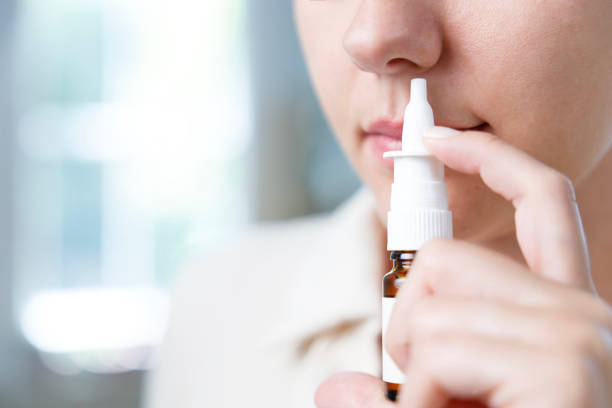USP Inhaler Device Robustness Testing
The USP Inhaler Device Robustness Test is a critical procedure mandated by the United States Pharmacopeia (USP) to ensure that inhalation and nasal devices meet stringent durability, performance, and safety standards. This test evaluates the resistance of the device against various mechanical stresses encountered during use, ensuring consistent delivery of medication or treatment. The USP guidelines provide detailed specifications for this robustness testing, which is essential in maintaining patient safety and efficacy.
The test involves subjecting the inhaler device to a series of stressors designed to simulate real-world conditions that could potentially impact its performance. These include dropping the device from specific heights onto hard surfaces, applying compressive forces, and exposing it to environmental extremes such as temperature fluctuations and humidity levels. Compliance with these tests is mandatory for any product seeking USP approval.
Our laboratory utilizes state-of-the-art equipment tailored specifically for this type of testing. Our robustness test setup includes calibrated drop towers capable of simulating the impact forces experienced by inhalers during transport, storage, and use. Additionally, we employ hydraulic presses to apply controlled compressive loads on the device’s components.
The USP 687 Inhalation Device Testing chapter provides comprehensive guidance on conducting these tests. It outlines precise procedures for testing different types of inhaler devices including metered-dose inhalers (MDIs), dry powder inhalers (DPIs), and nebulizers. The acceptance criteria stipulated in the USP are stringent, ensuring that only those inhaler devices meeting all specified performance parameters can pass this rigorous evaluation.
Our comprehensive testing services go beyond mere compliance; they provide valuable insights into how your product will perform under actual usage conditions. By identifying potential weaknesses early on through robustness testing, you can make necessary design improvements before launching your product into the market.
Why It Matters
The importance of USP Inhaler Device Robustness Testing cannot be overstated in today’s healthcare landscape. Ensuring that inhalation and nasal devices are robust enough to withstand everyday stresses is crucial not only for maintaining product integrity but also for protecting public health.
- Protects Patient Safety: A robust device reduces the risk of malfunctions or failures during use, which could lead to ineffective treatment delivery or even harm.
- Enhances Product Integrity: By ensuring that inhalers can endure typical handling and storage conditions, you enhance confidence in your brand’s reliability.
- Maintains Efficacy: Robust devices are less likely to be affected by environmental factors like temperature changes or rough handling, thereby preserving the efficacy of the medication being delivered.
In addition, robustness testing helps manufacturers identify any design flaws early in the development process. This proactive approach allows for corrections before large-scale production begins, saving time and resources while improving overall product quality.
Compliance with USP standards is also essential for regulatory approval processes. Meeting these stringent criteria demonstrates a commitment to excellence that can significantly enhance your brand’s reputation among healthcare professionals and consumers alike.
Industry Applications
| Application Area | Type of Inhaler Device Tested |
|---|---|
| Metered-Dose Inhalers (MDIs) | Demonstrates resilience against impacts and compressions. |
| Dry Powder Inhalers (DPIs) | Ensures durability under varying humidity levels. |
| Nebulizers | Evaluates resistance to heat and pressure changes during use. |
The robustness testing we offer caters to a wide range of inhaler devices used in various therapeutic areas such as respiratory diseases, asthma management, allergy relief, and more. Our expertise ensures that your product meets the highest standards set by regulatory bodies worldwide.
Environmental and Sustainability Contributions
- Eco-Friendly Materials: By ensuring robustness early on, we help reduce waste from defective products reaching consumers.
- Resource Efficiency: Robust design minimizes the need for frequent replacements due to failures, thereby conserving resources and energy throughout a product’s lifecycle.
- Energy Savings: Devices that perform consistently across different environmental conditions contribute to overall energy efficiency in healthcare settings.
Our commitment to sustainability extends beyond just robustness testing. We continuously strive to innovate our processes, adopting greener technologies and practices wherever possible. This not only benefits the environment but also reflects positively on your brand’s reputation as a leader in sustainable healthcare solutions.





